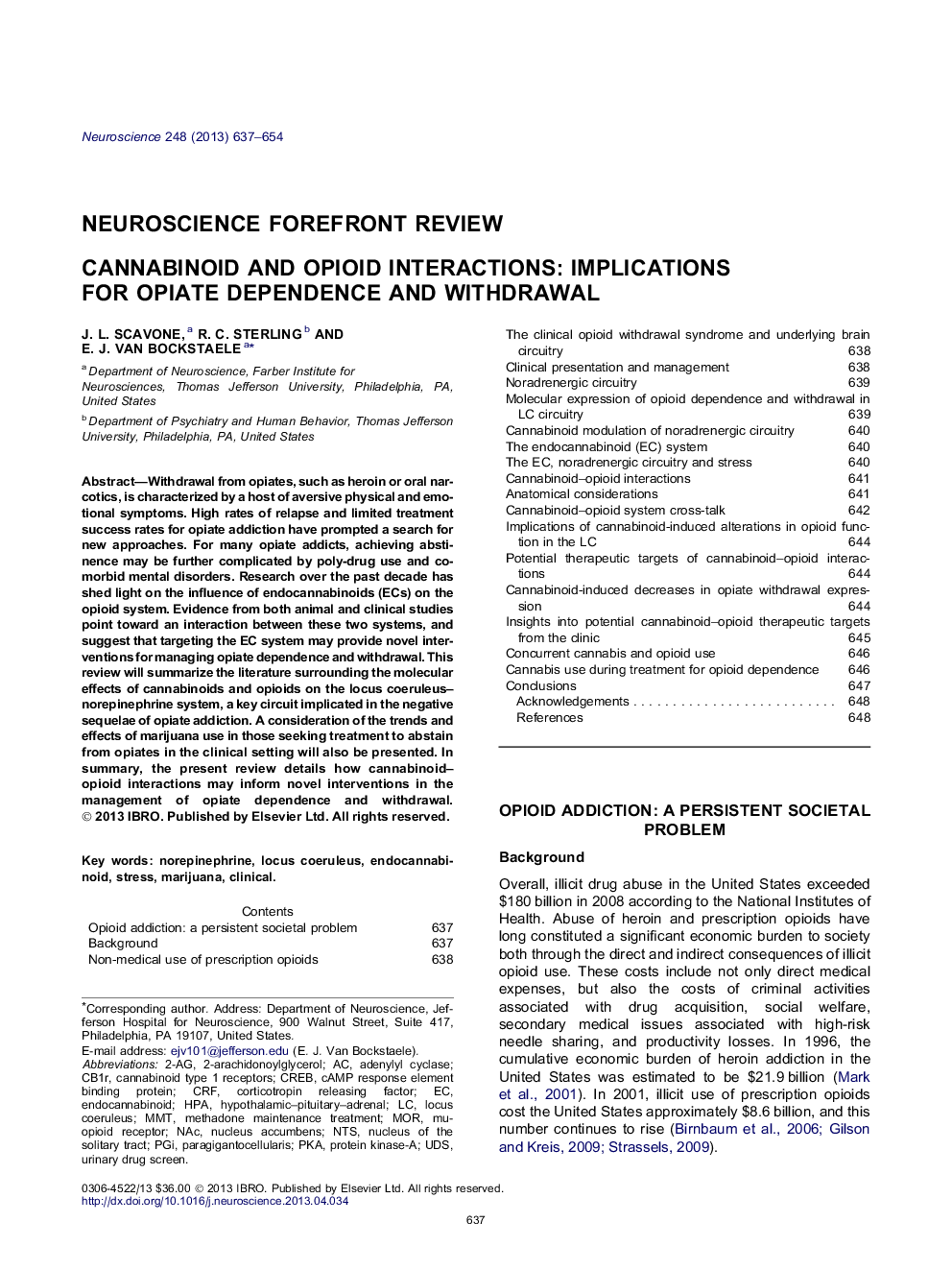| Article ID | Journal | Published Year | Pages | File Type |
|---|---|---|---|---|
| 6274643 | Neuroscience | 2013 | 18 Pages |
Abstract
Withdrawal from opiates, such as heroin or oral narcotics, is characterized by a host of aversive physical and emotional symptoms. High rates of relapse and limited treatment success rates for opiate addiction have prompted a search for new approaches. For many opiate addicts, achieving abstinence may be further complicated by poly-drug use and co-morbid mental disorders. Research over the past decade has shed light on the influence of endocannabinoids (ECs) on the opioid system. Evidence from both animal and clinical studies point toward an interaction between these two systems, and suggest that targeting the EC system may provide novel interventions for managing opiate dependence and withdrawal. This review will summarize the literature surrounding the molecular effects of cannabinoids and opioids on the locus coeruleus-norepinephrine system, a key circuit implicated in the negative sequelae of opiate addiction. A consideration of the trends and effects of marijuana use in those seeking treatment to abstain from opiates in the clinical setting will also be presented. In summary, the present review details how cannabinoid-opioid interactions may inform novel interventions in the management of opiate dependence and withdrawal.
Keywords
MORparagigantocellularisPGIUDSMMT2-arachidonoylglycerolCB1RNTSpKaCREBCRF2-AGNACadenylyl cyclaseendocannabinoidStressClinicalmethadone maintenance treatmentcorticotropin releasing factorlocus coeruleusMarijuanaHPAnorepinephrineNucleus accumbensnucleus of the solitary tracthypothalamic–pituitary–adrenalcAMP response element binding proteinProtein kinase-Amu-opioid receptor
Related Topics
Life Sciences
Neuroscience
Neuroscience (General)
Authors
J.L. Scavone, R.C. Sterling, E.J. Van Bockstaele,
